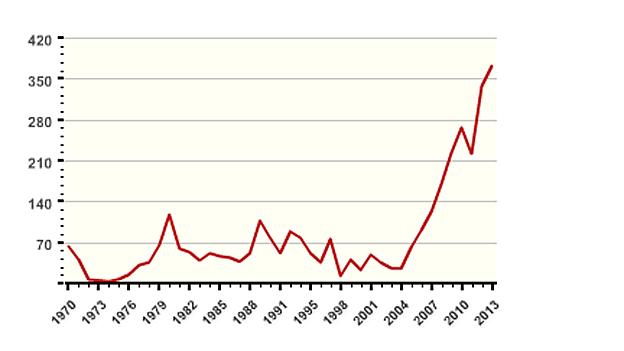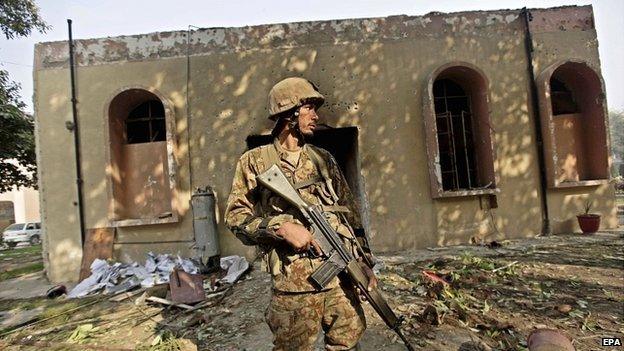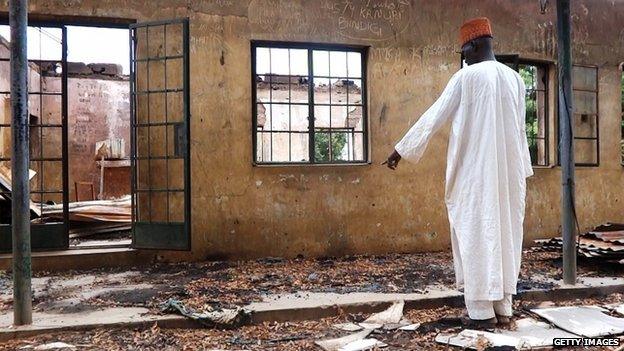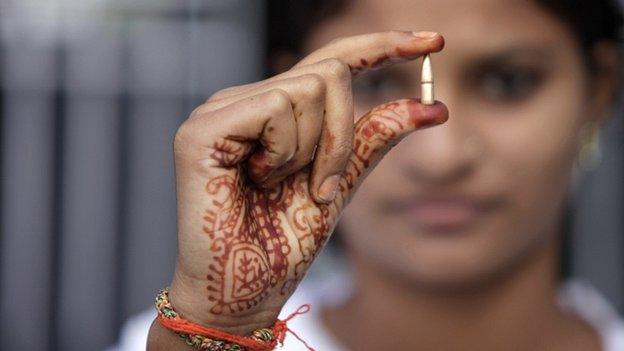Global school terror attacks rising
- Published

The Global Terrorism Database, at the University of Maryland, records attacks on education
Terror attacks on schools and colleges around the world have risen to higher levels than at any point in more than 40 years, according to a long-term analysis of global terrorism.
Researchers at the University of Maryland have recorded attacks on education between 1970 and 2013.
The Global Terrorism Database shows a sharp increase in attacks since 2004.
Pakistan had the highest number, but the figures do not include last month's massacre of school pupils in Peshawar.
The report, Terrorist Attacks on Educational Institutions, examines the long-term incidence of deliberate aggression against places of learning.
But researchers say that fatal assaults on schools such as in Peshawar in north-west Pakistan, where more than 140 students and staff were killed, mark a deadly and unusual departure from the typical pattern.
Fewer casualties
Attacks on education, recorded since 1970, were much more likely to be without deaths, says the report.
Many attacks were on unoccupied school and university buildings, intended to disrupt and destroy classes and to intimidate communities rather than to kill or injure.
"This produced a considerably lower likelihood that the attack caused any casualties," says the analysis from researchers in the Study of Terrorism and Responses to Terrorism project.

A soldier on guard outside the school in Peshawar, Pakistan, attacked by Taliban gunmen last month
Between 1970 and 2013, more than two-thirds of terrorist attacks on education targets did not cause any deaths, a much lower casualty rate than other types of terrorist assaults, such as against the military or police.
Among all terrorist attacks during this era, education has represented about 3% of targets.
Pakistan, across the past four decades, has experienced more terror attacks on education than any other country. Most of these have been non-lethal attacks on school and university buildings, with arson or incendiary devices the most common tactics.
"The primary goal of these attacks appears to be disruption of the educational process, particularly at girls' schools, rather than loss of life," says the analysis from researchers.
Abducted schoolgirls
The rising number of global attacks on education includes the threat in Nigeria from the Boko Haram radical group, which the study says has been deliberately attacking education institutions since 2008.
Attacks by this group were more likely to be armed assaults and bombings, with high-profile kidnappings such as the abduction of schoolgirls in Chibok.

More than 40 students and staff were killed in a Boko Haram attack on a school in north-east Nigeria
The researchers say there is a "distinct pattern" to attacks in Nigeria, with a greater prevalence of co-ordinated, multiple assaults. As an example, in October 2012 there were eight separate schools burned down in one night.
The study, examining the long-term patterns, also shows that attacks on education are not a new phenomenon - and not restricted to the developing world.
At the beginning of the 1970s, there were attacks on educational buildings in the United States by a range of groups, including radical students, opponents of the Vietnam War and white supremacists opposed to desegregating schools.
A coalition of United Nations agencies, human rights groups and aid organisations has also been monitoring the phenomenon of attacks on schools, colleges and universities.
Last year it published a report cataloguing a range of attacks and intimidations on staff, pupils and buildings, from individuals, criminal gangs and government forces as well as terror groups. This recorded almost 10,000 incidents since 2009.
- Published27 February 2014

- Published17 December 2014

- Published25 December 2014
